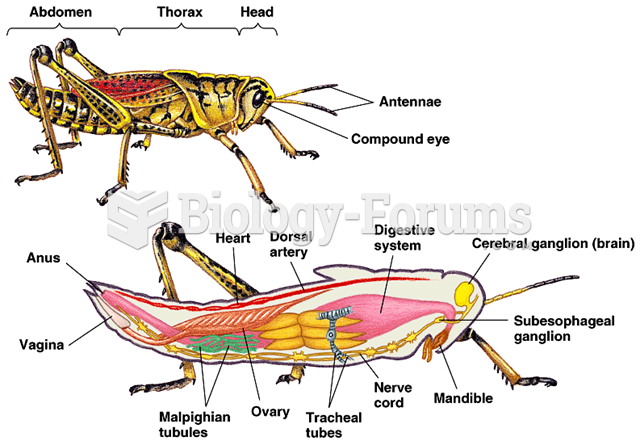|
|
|
The FDA recognizes 118 routes of administration.
For pediatric patients, intravenous fluids are the most commonly cited products involved in medication errors that are reported to the USP.
Methicillin-resistant Staphylococcus aureus or MRSA was discovered in 1961 in the United Kingdom. It if often referred to as a superbug. MRSA infections cause more deaths in the United States every year than AIDS.
Once thought to have neurofibromatosis, Joseph Merrick (also known as "the elephant man") is now, in retrospect, thought by clinical experts to have had Proteus syndrome. This endocrine disease causes continued and abnormal growth of the bones, muscles, skin, and so on and can become completely debilitating with severe deformities occurring anywhere on the body.
The familiar sounds of your heart are made by the heart's valves as they open and close.








